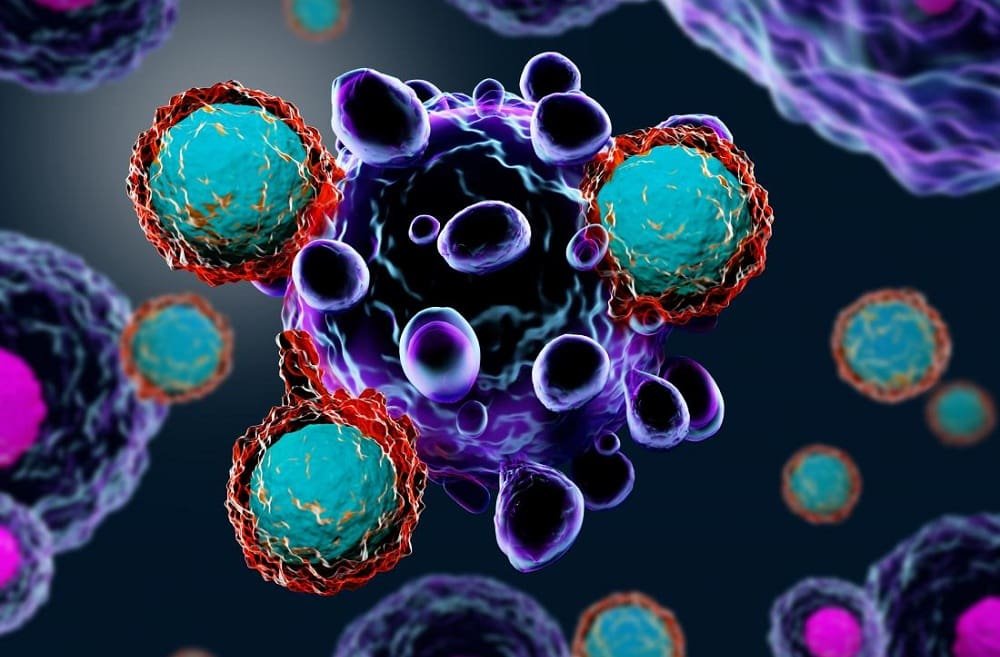BostonGene and Prisma Health Collaborate to Predict Immunotherapy Efficacy in Rare Cancers
19 January 2024 | Friday | News

Image Source : Public Domain
BostonGene, a leading provider of AI-based molecular and immune profiling solutions provider, today announces a collaboration with Prisma Health aimed at advancing the understanding of rare tumors by characterizing the tumor microenvironment (TME), mutational landscape and host immune profiles of patients treated with immune checkpoint inhibitors.
In collaboration with Prisma Health’s Rare Tumor Center, BostonGene will analyze tissue and peripheral blood from rare cancer solid-tumor patients to understand the molecular underpinnings of immune-activating drugs commonly used to enhance a person's innate mechanisms to fight cancer. BostonGene will perform detailed analyses of primary tumors and immunoprofiling of matched peripheral blood collected during this cohort of the trial, which is currently enrolling patients.
Prisma Health, the largest healthcare system in South Carolina, established its Rare Tumor Center in 2014 with a focus on improved outcomes for patients with rare cancers. By adding AI-powered molecular profiling to its long-running prospective clinical trial on checkpoint inhibitors, Prisma Health’s physician researchers hope to gain a substantially deeper understanding, not just of cancer, but of cancer’s interaction with the surrounding tissue and normal supportive cells. The center is part of the Prisma Health Cancer Institute, which actively participates in more than 300 clinical trials annually.
“BostonGene’s innovative solutions will provide a substantially deeper understanding of the molecular profiles of rare tumor patients, which could help us better determine what therapies work for which patients,” said Jeffrey Edenfield, MD, medical director for Prisma Health’s Institute for Translational Oncology Research and founder of its Rare Tumor Center. “We are excited about the opportunity to identify potential molecular markers of treatment response and, in turn, improve patient outcomes.”
“We’re honored to collaborate with Prisma Health for this prospective clinical trial,” said Nathan Fowler, MD, chief medical officer at BostonGene. “We are confident that our next-generation multi-omics analytics will uncover unique molecular characteristics that can be utilized to personalize treatment plans for patients with rare tumors.”
BostonGene’s computational platform integrates genomic, transcriptomic and immunoprofiling data to assess the TME and corresponding host immune status to characterize somatic alterations, gene expression, fusions, tumor heterogeneity, the TME and immunoprofiles.
Visit ClinicalTrials.gov for more information on the protocol, A Phase II Study of Durvalumab (MEDI4736) (Anti-PD-L1 Antibody) in Combination with Tremelimumab (Anti-CTLA-4 Antibody) in Subjects with Advanced Rare Solid Tumors.
Most Read
- Innovations In Magnetic Resonance Imaging Introduced By United Imaging
- Management of Relapsed/Refractory Multiple Myeloma
- 2025 Drug Approvals, Decoded: What Every Biopharma Leader Needs to Know
- BioPharma Manufacturing Resilience: Lessons From Capacity Expansion and Supply Chain Resets from 2025
- APAC Biopharma Review 2025: Innovation, Investment, and Influence on the Global Stage
- Top 25 Biotech Innovations Redefining Health And Planet In 2025
- How Health Systems Are Reshaping Drug Adoption, Partner Models, and Market Access in 2026
- The New AI Gold Rush: Western Pharma’s Billion-Dollar Bet on Chinese Biotech
- Single-Use Systems Are Rewiring Biopharma Manufacturing
- The State of Biotech and Life Science Jobs in Asia Pacific – 2025
- Asia-Pacific Leads the Charge: Latest Global BioSupplier Technologies of 2025
- Invisible Threats, Visible Risks: How the Nitrosamine Crisis Reshaped Asia’s Pharmaceutical Quality Landscape
Bio Jobs
- The State of Biotech and Life Science Jobs in Asia Pacific – 2025
- Avantor’s New CEO Ligner Aims to Unlock Global Potential and Deliver Shareholder Value
- AstraZeneca Commits $50 Billion to U.S. Expansion by 2030 in Biggest-Ever Global Investment
- Thermo Fisher, SAMRC, and South Africa’s Department of Science and Innovation Launch CATIR to Nurture Next-Gen Scientists
- Cube Biotech Appoints Former Sartorius CEO Dr. Joachim Kreuzburg to Board of Directors
- FDA’s AI Transition Marks a Turning Point in Drug Review: Industry Faces Pressure to Adapt Amid 20% Workforce Cut
- WuXi XDC Completes Mechanical Build of Singapore Bioconjugate Manufacturing Hub
News
Editor Picks











